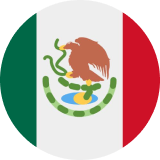
International Surrogacy for European Citizens
What European citizens need to know about surrogacy overseas
Ask for Preparation AdviceWhy consider surrogacy abroad?
European singles and couples struggling to start a family often turn to alternate family-building methods such as surrogacy and egg donation. However, Europe’s legal landscape for these options is complex. As a result, many EU citizens look to international surrogacy for its affordability, legal clarity, and high-quality medical care.

Cost-effective options: Pursuing surrogacy abroad can be a more affordable alternative to domestic programs, offering competitive pricing without compromising on exceptional care and professionalism.
Legal clarity and support: Countries such as the US, Canada, and Colombia offer clear legal frameworks. These laws define legal parentage and provide support throughout the surrogacy process, bringing peace of mind and security to everyone involved.

A wider pool of qualified surrogates and donors: International surrogacy offers a wider, more diverse pool of vetted surrogates and egg donors. This increases your chances of finding the perfect match to help build your family.
Where do Europeans commonly pursue international surrogacy?
For European citizens considering international surrogacy, several destinations have become prominent choices:

While surrogacy in the US comes at a higher cost, it remains a popular choice because of the country’s robust legal framework, excellent medical care, and well-established agencies. California, Nevada, and Illinois are particularly popular states due to their supportive legal environments and experience in handling international cases.

With strong legal protections and a well-regulated system, Canada provides a safe, affordable alternative. Although only altruistic surrogacy is permitted, Canada’s robust legal framework streamlines parentage recognition and immigration procedures. However, availability of surrogates is poor, due to demand far outstripping supply

Georgia has a clear legal framework for surrogacy, where heterosexual couples can easily secure parentage rights. The country offers affordable surrogacy services, and its laws ensure that both intended parents are recognized legally. However conservative views and a small population means a limited supply of Georgian surrogates

A word of caution: We strongly advise against surrogacy in certain countries due to a lack of legal protections, ethical concerns, unreliable healthcare, instability, immigration issues, or risks of hidden costs and scams. These factors can jeopardize the safety and success of the surrogacy process.
Such countries include:

Argentina

Cambodia

Greece

Guatemala

India

Kenya

Laos

Nepal

North Cyprus

Ukraine
What to expect when engaging in international surrogacy
An international surrogacy journey demands a comprehensive understanding of several key factors. We’ve outlined a summary of what you can expect:

Extensive travel
Pursuing surrogacy abroad may involve traveling for preconception appointments. It will require an extended stay for the birth of your child to handle legal requirements, such as securing birth certificate, translations and travel documents. Researching your travel and accommodation options in advance is key to a smoother journey.
Legal considerations
Surrogacy laws vary widely across countries, especially regarding parentage and citizenship. Intended parents must navigate the legal framework of the country where the surrogacy takes place to make sure they are recognized as the legal parents. This often involves legal processes post-birth, such as applying for documentation to establish parentage and citizenship for the child.
Medical protocols
Medical protocols for in vitro fertilization and surrogacy programs follow rigorous standards, often facilitated through licensed clinics. The process includes medical screenings for both the surrogate and intended parents. You will be guided through established protocols for embryo transfer, prenatal care, and birth. Understanding and adhering to these medical guidelines is crucial to maintaining the health of both the surrogate and the baby.
Country-specific guidance for your international surrogacy journey
Navigating international surrogacy also requires familiarity with your home country’s laws regarding parentage and citizenship. While the laws of the destination country govern the birth itself, the process of bringing your child home and establishing legal parentage is dictated by your own government’s regulations.
For Bulgarian citizens
- Domestic law: Surrogacy is effectively prohibited in Bulgaria. It is not explicitly illegal, but there is no legal framework to support or enforce surrogacy agreements, placing it in a legal gray area. The surrogate mother is considered the legal mother at birth.
- International surrogacy and repatriation: Because of the domestic prohibition, Bulgarian citizens travel abroad for surrogacy. Moreover, bringing a child home and establishing parentage require careful navigation of the Bulgarian legal system.
- Parentage process: Citizenship may be granted if at least one intended parent is a Bulgarian citizen and can establish a genetic link. The foreign birth certificate must be submitted to the Bulgarian authorities, often along with DNA evidence. The legal status of the nonbiological parent can be ambiguous and may require a domestic adoption or a court claim to establish parental rights after returning to Bulgaria.
For Danish citizens
- Domestic law: Commercial surrogacy remains illegal in Denmark. However, a landmark political agreement in 2024 has paved the way for new legislation to recognize and support families formed through international surrogacy.
- International surrogacy and repatriation: Danish citizens are free to travel abroad for surrogacy. The new agreement is designed to simplify the repatriation process and provide immediate legal security for children born through surrogacy.
- Parentage process: The new rules will allow for the legal recognition of both intended parents from the child’s birth. This marks a major shift, as it will eliminate the previous requirement for the nonbiological parent to undergo a lengthy step-parent adoption process. As long as the surrogacy was conducted under a clear legal framework in the country of birth, both parents’ rights can be established upon returning to Denmark.
For Dutch citizens
- Domestic law: While altruistic surrogacy is permitted, the system is highly restrictive, which leads many Dutch citizens to seek options abroad.
- International surrogacy and repatriation: Dutch citizens can engage in surrogacy overseas, but the government is cautious and does not automatically recognize foreign arrangements. A foreign birth certificate is not sufficient to establish parentage in the Netherlands.
- Parentage process: A child’s Dutch citizenship comes from the legally recognized parent, which is usually the biological one. However, the other intended parent — even a mother who used her own egg for the pregnancy — must go through a domestic adoption procedure after returning home to be recognized as a legal parent.
For French citizens
- Domestic law: All forms of surrogacy remain strictly illegal within France. The government does not permit or facilitate surrogacy arrangements on French soil.
- International surrogacy and repatriation: Despite the domestic ban, a landmark French Supreme Court ruling in October 2024 has dramatically changed the landscape for citizens pursuing surrogacy abroad. This decision allows for the direct recognition of foreign legal orders related to surrogacy.
- Parentage process: Following this pivotal ruling, France will now recognize pre-birth or post-birth parentage orders from other countries. This means a foreign birth certificate listing both intended parents can be officially transcribed in France. This groundbreaking change eliminates the previous requirement for the nonbiological parent to go through a complex adoption process, provided the foreign surrogacy was conducted within a clear legal framework where the surrogate’s consent was explicit.
For Georgian citizens
- Domestic law: Georgia has a clear and favorable legal framework for heterosexual couples engaging in surrogacy, making it a prominent choice for intended parents. For Georgian citizens who meet the criteria, domestic surrogacy is a straightforward and legally secure option.
- International surrogacy and repatriation: Because domestic laws are so supportive, it is less common for Georgian heterosexual couples to seek surrogacy abroad. If they do, the process of repatriation would be governed by standard Georgian laws on citizenship for children born abroad to Georgian nationals.
- Parentage process: In a domestic arrangement, the intended parents are recognized as the legal parents from conception, and their names are placed directly on the birth certificate.
For German citizens
- Domestic law: All forms of surrogacy are strictly illegal in Germany, and the government does not recognize surrogacy agreements.
- International surrogacy and repatriation: Despite domestic prohibition, German citizens frequently travel abroad for surrogacy. The process of bringing a child home is legally complex.
- Parentage process: A foreign birth certificate naming both intended parents is not automatically accepted in Germany. Typically, only the biological father is initially recognized as a legal parent. The intended mother or second father must then go through a step-parent adoption process in Germany to secure their legal parental rights.
For Greek citizens
- Domestic law: Greece permits altruistic surrogacy for heterosexual couples and single women, but it is a complex process that requires court approval and has strict conditions.
- International surrogacy and repatriation: Greek citizens are permitted to pursue surrogacy in other countries where it is legal. The repatriation process requires working closely with the Greek consulate in the country of birth.
- Parentage process: Parentage is generally established using the foreign birth certificate combined with DNA evidence that proves a biological link to at least one Greek parent. While the process is typically straightforward, it requires careful legal planning to ensure a smooth transition.
For Irish citizens
- Domestic law: Ireland has historically lacked specific legislation governing surrogacy, creating legal ambiguity, particularly for the nonbiological parent. However, new legislation — the Health (Assisted Human Reproduction) Act 2024 — is progressing to regulate domestic altruistic surrogacy.
- International surrogacy and repatriation: International surrogacy is a common path for Irish intended parents. Bringing your child home involves applying for an Irish passport through the embassy in the destination country, which requires DNA proof of a genetic link to at least one Irish parent.
- Parentage process: Upon returning to Ireland, the nonbiological parent is not automatically recognized as a legal parent. They must apply for guardianship and/or adoption to secure parental rights.
For Swiss citizens
- Domestic law: The Swiss Constitution explicitly prohibits all forms of surrogacy. The government maintains a very strict stance against it and considers any arrangements, domestic or foreign, to be illegal and unenforceable.
- International surrogacy and repatriation: The Swiss government actively discourages its citizens from pursuing surrogacy abroad and does not recognize foreign surrogacy arrangements.
- Parentage process: A foreign birth certificate naming both intended parents will not be recognized by Swiss authorities. Only the parent with a proven biological link can be registered as a parent. The other intended parent must go through a complex and lengthy adoption process, and its success is not guaranteed. Swiss authorities might look into cases, and sometimes they may not be as collaborative as hoped.
Preparing for your international surrogacy journey as a European citizen
Embarking on an international surrogacy journey demands meticulous preparation for a seamless and successful experience. Follow these crucial steps to streamline the process:
Do your due diligence
Research surrogacy destinations, agencies, and the countries’ legal frameworks. Understanding the regulations on surrogacy, parental rights, and citizenship in your chosen country is essential for making informed decisions that align with your family’s goals.
Plan your budget carefully
Surrogacy abroad can be cheaper upfront, but you should factor in all costs such as travel, legal fees, medical procedures, and post-birth legal requirements. Careful planning and budgeting for these can minimize unexpected expenses and offer greater peace of mind.
Establish clear communication
Clear and open communication is the cornerstone of a successful surrogacy journey. Staying in regular contact with your agency, legal team, medical team, and surrogate will keep everyone on the same page and set clear expectations at every stage.

Key Considerations
As you prepare for international surrogacy, keep these important factors in mind:
- Legal parentage: Each country has its own parentage laws. Know the rules in your chosen destination, how parentage is established, and the steps needed to secure your legal rights.
- Cultural awareness: Understanding a country’s cultural norms can enhance your surrogacy experience. Strong relationships with your surrogate and agency build trust and open communication, which are key to a positive alternate family-building journey.
- Choosing Providers: Research the providers involved in your journey, including surrogacy agencies, donor banks, IVF clinics. Confirm they are reputable, transparent, and experienced in international surrogacy, with clear protocols to ensure the safety and well-being of everyone involved.
- Embryo and gamete transport: If your surrogacy journey involves transporting embryos or gametes, you must understand the regulations and logistics involved. Proper planning can help prevent delays or complications.
Learn more about surrogacy abroad
Explore Growing Families’ selection of informative articles that dive deeper into surrogacy abroad.

Our Verification Criteria Review Committee
At Growing Families, our verification criteria are shaped and refined by a global review committee of fertility and legal experts. These are the people who help ensure our standards are thorough, ethical, and responsive to the constantly evolving world of international surrogacy and donor IVF. Their expertise helps safeguard intended …

Webinar Recording: Medical & Genetic Testing in Surrogacy
What’s covered in this webinar The discussion combines medical expertise with real-world examples, making complex information easier to understand and apply. What you’ll gain from watching This webinar is especially valuable for intended parents considering surrogacy, donor IVF, or international programs, and for those who want to reduce avoidable risks …

Building Trust in Surrogacy: Our Verification Criteria
Why verification matters Surrogacy is not a single decision. It is a series of decisions made over time, often across borders, legal systems, and medical frameworks. Intended parents are asked to place an enormous amount of trust in professionals they may never meet in person. That trust has real consequences, …
Upcoming and recent webinars
Stay informed and up to date by joining our free webinars or accessing recordings of our past sessions.
Fri, 27 Mar 5:00 pm

Free Webinar
Understanding Surrogate Matching in Colombia
Meet Our Expert Speakers Parents & Families Speaking at our London Event Finding the right …
Fri, 27 Feb 9:00 pm

Free Webinar
Georgia Surrogacy: Is It Still Safe?
Meet Our Expert Speakers Parents & Families Speaking at our London Event Surrogacy in Georgia …
Sat, 21 Mar 8:00 am

Free Webinar
Comparing Donor Programs: Clinics, Banks and Agencies
Meet Our Expert Speakers Parents & Families Speaking at our London Event Finding the right …
FAQS
Each country has unique surrogacy laws. While some EU countries have complex legal processes for establishing parentage, others, such as the US and Canada, have clearer frameworks. Always research and consult a legal expert to ensure your parental rights are recognized.
Look for medical facilities and clinics that meet international standards. Keep in touch with the medical team throughout the pregnancy to help keep the surrogate and baby safe and healthy.
Traveling with a newborn requires specific documentation, such as birth certificates and passports. Depending on the country where the surrogacy took place and where you’re going, you may need temporary travel documents. Expert guidance can help streamline this process.
Growing Families connects you with trusted agencies and experienced surrogacy lawyers worldwide. We’ll help you find the right support to navigate your international surrogacy journey.
Ready to start your international surrogacy journey?
Schedule a consultation with the Growing Families team and take the first step toward parenthood.
Contact Us

